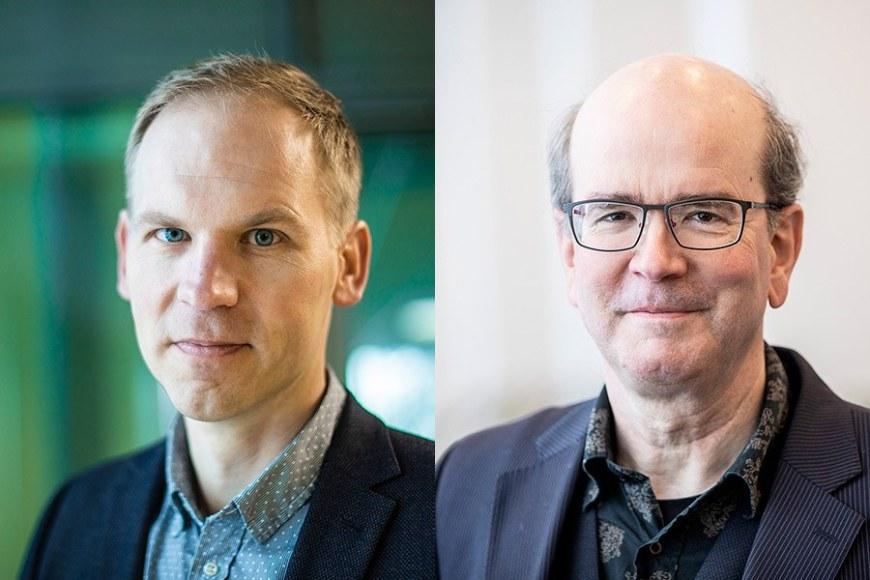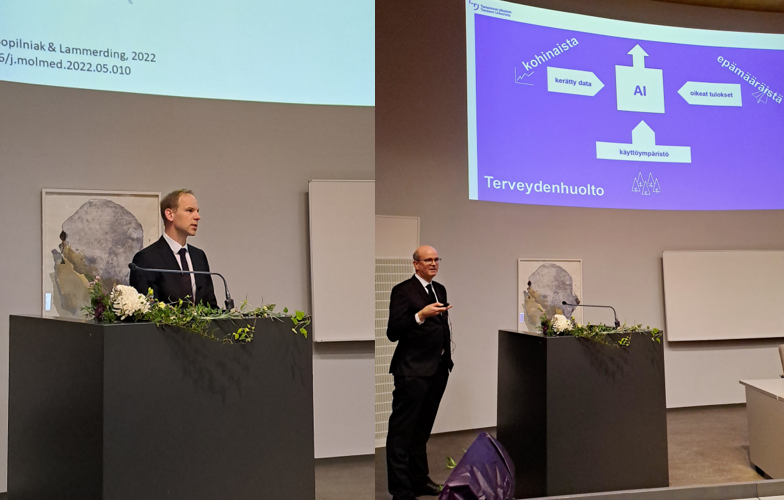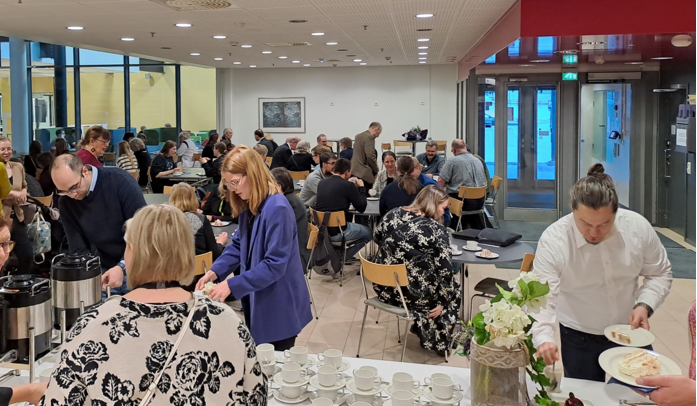Professors at Faculty of Medicine and Health Technology’s (MET) held inaugural lectures


Professor Vesa Hytönen started working as an associate professor at the University of Tampere in 2016. He became full professor in 2020. In his inaugural lecture, Professor Hytönen described what mechanobiology is and how mechanobiological phenomena are studied.
Mechanobiology aims to discover how mechanical signals guide tissue development and differentiation, physiological processes, and the onset of diseases. Examples of mechanosignalling include mechano-sensitive ion channels related to hearing or blood pressure regulation, and mechanical messages that control muscle and skeletal functions.
Thus far, research has shown that mechanobiological factors regulate cell differentiation, and mechanical signals have been found, for example, to control the location of proteins that regulate gene reading in cells. MET faculty is currently researching and developing, among other things, programmable 3D materials that can guide the development of cancerous tumours through mechanobiological messages.
Professor Mark van Gils (digitalisation of healthcare) was appointed Professor at Tampere University in 2021. Professor van Gils works in Seinäjoki and Tampere as part of the successful EPANET cooperation.
In his lecture, Professor van Gils described opportunities to enhance individual care, disease prevention and process development through artificial intelligence and digital solutions.
AI-enabled equipment and applications are being developed in many areas, such as imaging, cardiovascular diseases, neurology, and internal medicine research and diagnostics.
The information utilised by artificial intelligence is always based on collected data, previous results or specific use cases and device environments. The quality of the obtained data is the main cause of limitations in the utilisation of artificial intelligence. Obstacles to the spread of artificial intelligence include incomplete information, noise, technical and non-technical limitations, differences in diagnostic methods, delays in the accumulation of responses, differences in measurement principles, and differences in operating environments, cultures, and processes.
Projects are currently being coordinated in Tampere to collect, define, and validate data and models for the more effective identification of cardiovascular diseases and the more accurate definition of treatment.
Congratulations to the new professors at the Faculty of Medicine and Health Technology!






